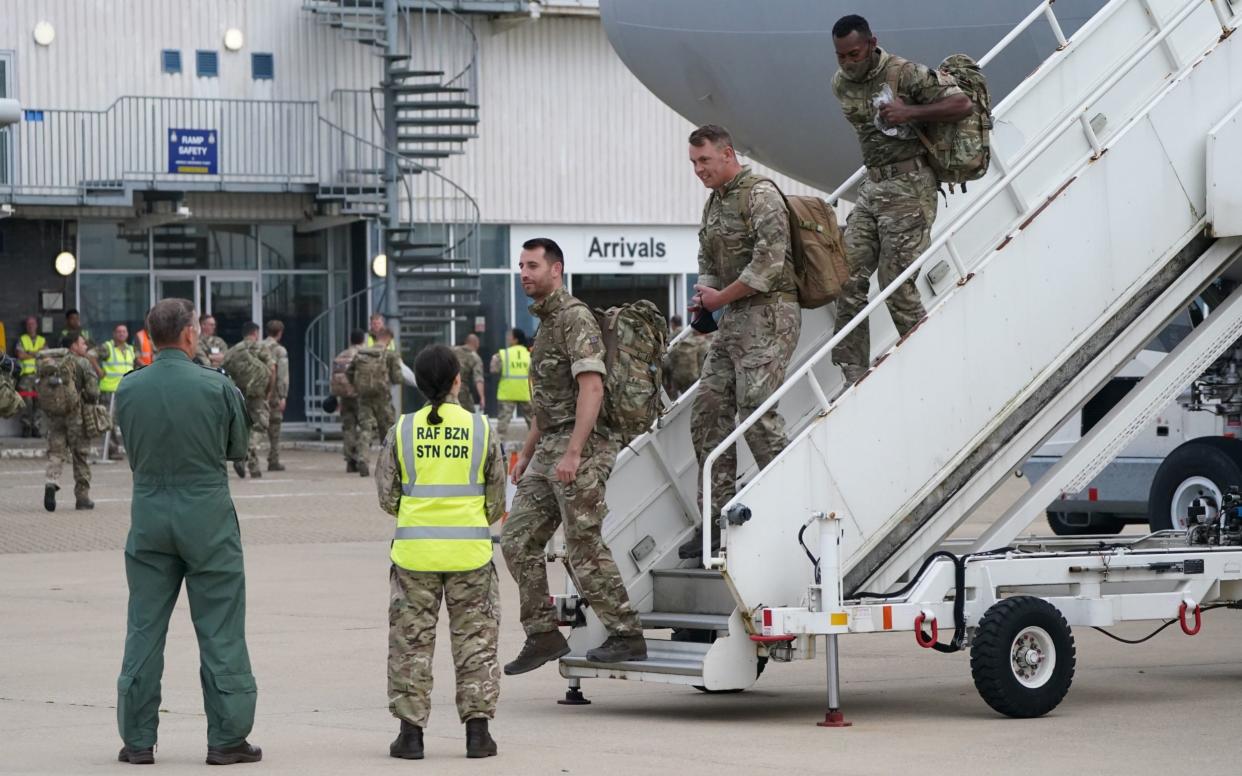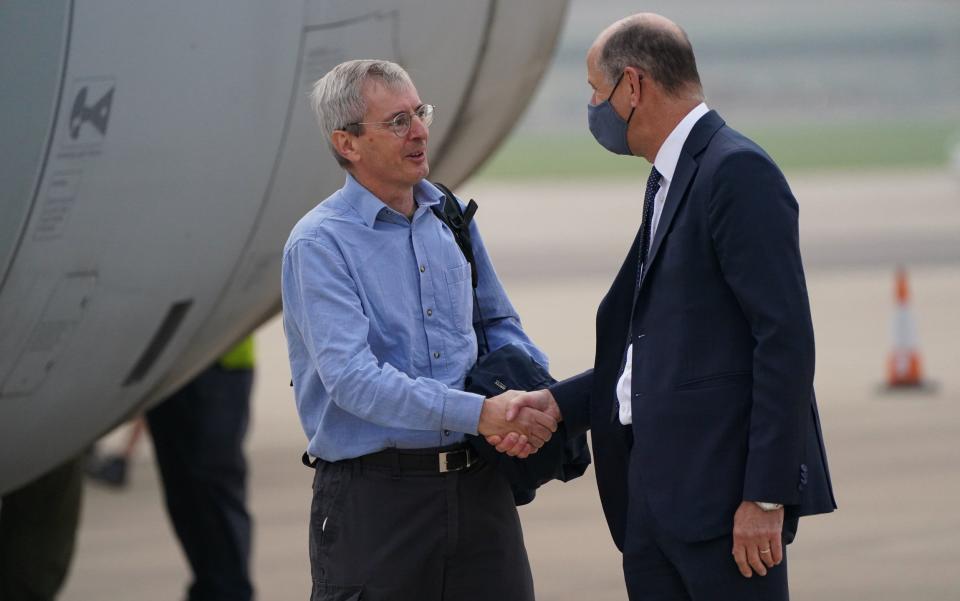Afghan commandos could fight for British Army like Gurkhas

- Oops!Something went wrong.Please try again later.
Afghan special forces personnel could become a new regiment of the Army akin to the Gurkhas under proposals put forward to ministers, The Telegraph understands.
Hundreds of commandos from Afghanistan have arrived in the UK this month after training and serving with British troops for more than a decade.
A former head of the Army, former ministers and Tory select committee chairmen are backing calls for the Government to incorporate the specialist soldiers into the British Armed Forces.
The Telegraph understands that ministers are aware of the proposals and are expected to study them in detail as attention turns to the resettlement of thousands of Afghans who have arrived in Britain in the past fortnight.
On Sunday, Boris Johnson promised those arriving from Afghanistan that the Government would help them “contribute in any way possible to the life and economy of the country”.
Releasing a video to mark the end of Britain’s deployment, the Prime Minister assured the families of those who had died fighting that their suffering and hardship was “not in vain”.
Britain’s ambassador to Afghanistan, Sir Laurie Bristow, who arrived at RAF Brize Norton on Sunday, pledged to “protect the gains of the last 20 years and above all to help the Afghan people achieve the security and the peace that they deserve”.
Ministers have already decided to allow Afghans enrolled at Sandhurst to join the Army if they pass their course. Three Afghan cadets are due to start at the college next weekend, joining four officer cadets already enrolled. All seven had originally been due to join the Afghan National Army.
Today the crucial role played by Afghan special forces in Operation Pitting, Britain’s mission to airlift 15,000 people out of Kabul, can be reported.
The elite troops were sent undercover into the crowd outside Kabul airport to identify those eligible for resettlement in Britain. They helped find and collect Afghan translators and their families, risking their lives by venturing into Taliban controlled areas, and brought the refugees to the front of the queue where they were handed over to British paratroopers.
All Afghan security personnel who worked with British troops throughout the airlift were brought out on the final flights on Saturday, defence sources said.

Their role in the operation was disclosed by Major-General Nick Borton, Chief of Staff (Operations) at Permanent Joint Headquarters, in a private briefing to MPs last week.
Gen Sir Richard Barrons, former head of Joint Forces Command, praised the Afghan special forces, describing them as “very good by international standards”. Sir Richard added that Britain should support the Afghan special forces and suggested they could be deployed back in Afghanistan against Islamic State.
On Sunday, senior Tory MPs set out proposals for the creation of a new regiment of Afghans, similar to the brigade of Gurkhas, which comprises more than 4,000 Nepalese soldiers and was first recruited by the British 200 years ago.
Tom Tugendhat, chairman of the foreign affairs committee, said: “We trained and fought alongside many Afghans who are now in the UK. They’ve proved their loyalty a thousand times. If they want to serve, we should welcome them. I would love to see a regiment of Afghan scouts.”
Tobias Ellwood, chairman of the defence select committee, said: “Given that we’ve helped train these forces, it’s certainly something that needs to be a consideration. One avenue is they are kept as a unit, as the Gurkhas have operated. The other avenue is they are blended into our own system.”
Johnny Mercer, the former defence minister, also backed the proposal. “It would be an absolute waste not to make use of them,” he said.
Gen Lord Dannatt, former head of the Army, said: “I would be quite happy for Afghan former soldiers to join the British Army.”
On Sunday, a Ministry of Defence spokesman said of the thousands of Afghan nationals welcomed into the UK: “We are currently assessing how to best support them and utilise their skills and expertise going forward.”

